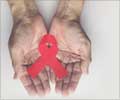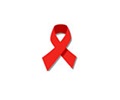AIDS/HIV Risk associated with sex
"My message to the businessmen of this country when they go abroad on business that there is one thing above all they can take with them to stop them catching AIDS, and that is the wife." - Edwina Currie, 1987
AIDS/HIV risk with casual unprotected sex is high. Condoms are effective in preventing transmission of AIDS.
It is know that unprotected sex can transmit HIV. Worldwide most new infections result from sexual transmission, but not all sexual practices. The likelihood of transmission depends greatly on the chance that a partner carries HIV, the stage of that person's infection, and the presence or absence of other sexually transmitted diseases. HIV is commonly transmitted sexually by penile-anal intercourse, penile-vaginal intercourse and oral sex.
About 99% of AIDS and HIV cases in Africa come from sexual transmission, and virtually all is heterosexual. It is estimated that three-quarters or more of all HIV infections worldwide are transmitted sexually. However, it is clear that HIV transmission does not occur during every unprotected sexual contact. Sexual transmission is a result of the interaction of a wide range of host factors, viral factors, and environmental factors.
The results of multiple studies make clear that condoms are highly effective in preventing the sexual transmission of HIV.
The surest way to avoid the sexual transmission of HIV infection is to abstain from sexual activity with other and unknown people. The next surest way is to have sex with only one partner who is known to be uninfected with HIV. The practice of 'one-night-stand' and unprotected sex with strangers is highly risky.














